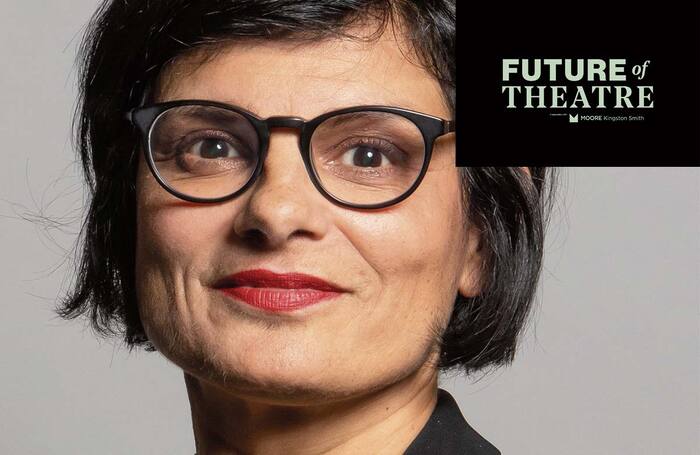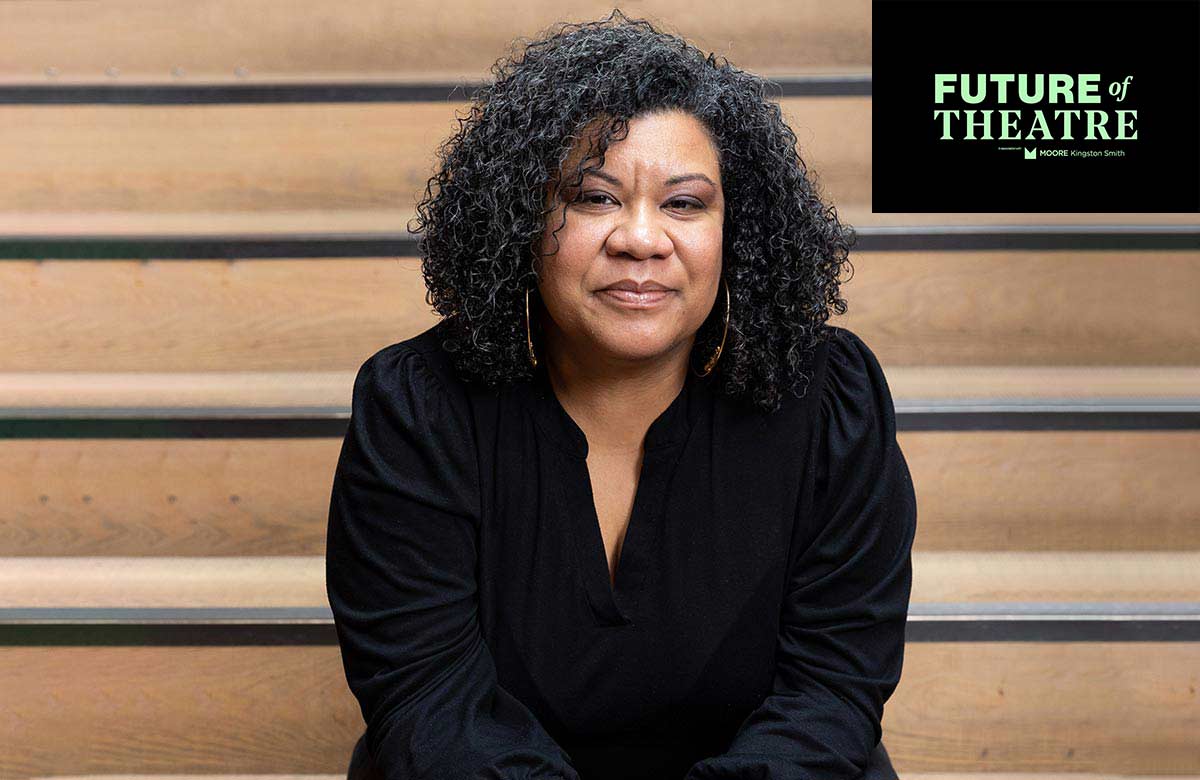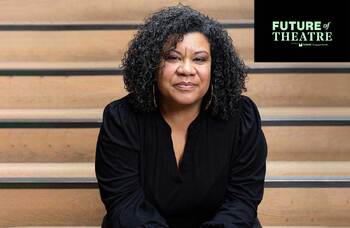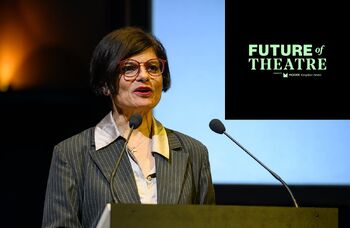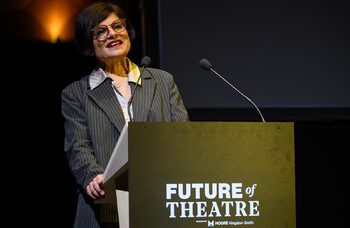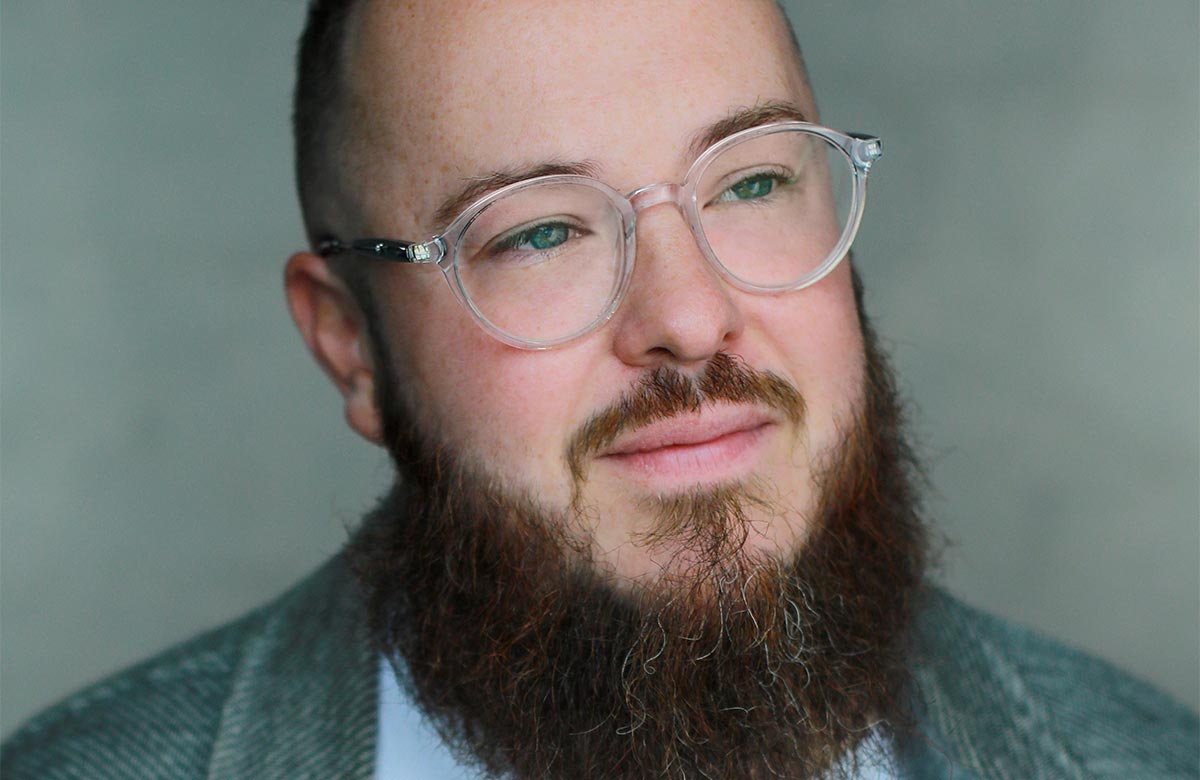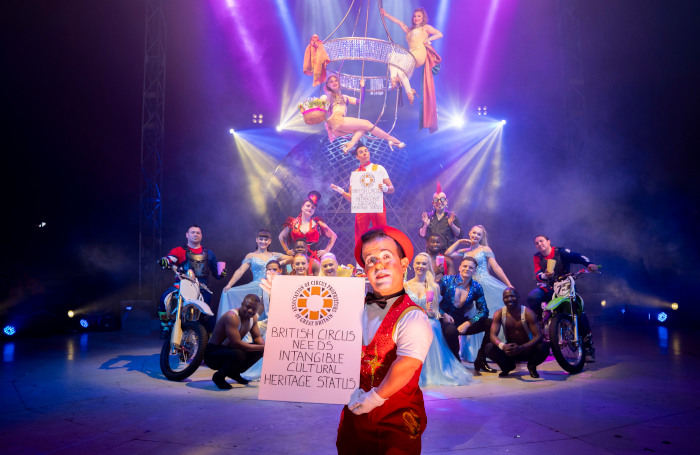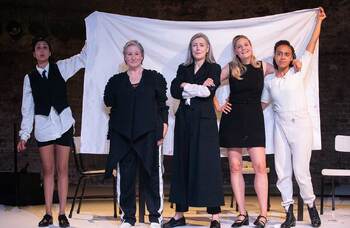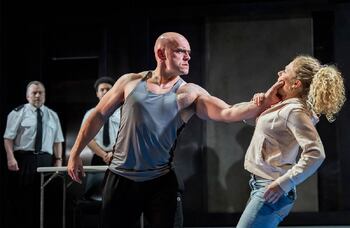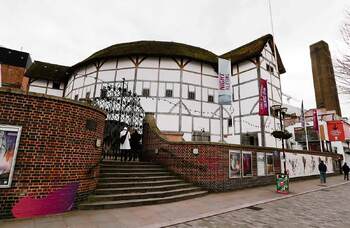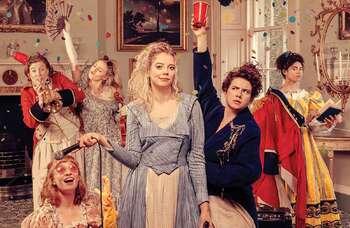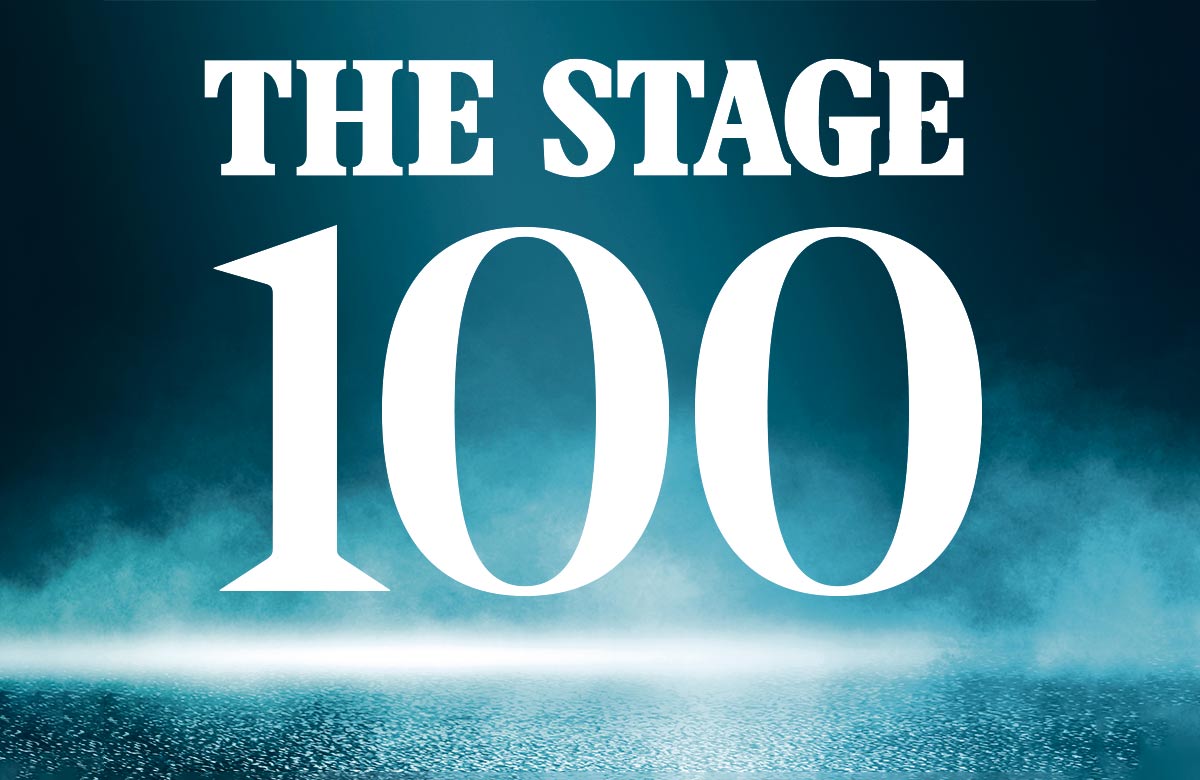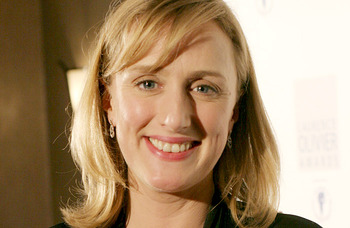The Tories, with 12 secretaries of state in 14 years (that is the record) have disregarded the sector in my view, using it as a pawn in destructive culture wars.
Labour, however, sees arts, culture and the creative industries as central to our plan for a decade of national renewal. We are interested in culture, not culture wars.
Our sector plan, which Keir and I launched at the Labour Creatives Conference in March, is phase one of that, because it’s going to take two terms at least, as Keir has said, to repair the damage.
Championing the creative industries is what Labour will do in government. In fact, it’s what we have always done.
Our priorities are:
• finding ways to get more money into the ecosystem of the creative industries;
• holding the balance between supporting and protecting human-centred creativity and exploring the potential of AI and other technology to unlock new frontiers;
• ensuring that our school curriculum is rich and broad, inclusive and innovative, so that every child has quality creative education;
• making sure a flexible, freelance career in the arts remains a viable prospect through our New Deal for Working People
• helping the arts, culture and creative industries to guarantee diversity and equality for those who make and those who enjoy, art and culture, and for those whose stories are told.
Over the last 14 years, despite all the barriers Tory governments have thrown in your way, the creative industries have found a way to carry on.
I want to tell you all: as well as joy, Labour sees what you do the creative industries, and we value it for economic growth.
We need economic growth to invest in schools, hospitals, everything we want to achieve, including the arts.
But we also need economic growth to be spread around the country, fairly distributed, so that everyone’s talent stands a chance. And I know just how much regional theatre, for example, has taken a hit, due to underfunding by local authorities because of government cuts.
It’s my personal mission – although I think it is an open door – to make sure that when shadow chancellor Rachel Reeves is talking about our industrial strategy, she’s talking about creative industries, she’s talking about arts and culture, and she’s talking about joy as well as jobs.
And actually, I already do hear her saying those things, because she already gets it. But it will be my job, on your behalf, to ensure she keeps saying it.
Almost 60 years ago it was Labour’s Jennie Lee, the first ever minister for the arts, who published the era-defining white paper, A Policy for the Arts.
She recognised their all-encompassing nature. She recognised that culture exists in an ecosystem, and she recognised that you don’t get it, you don’t sustain it by focusing narrowly.
You sustain the ecosystem, you help people within it to thrive, by focusing on infrastructure, education, skills, health, and finance – that’s a quote by the way, she said all of those.
Of course, this means we need more money in the arts and creative industries. Of course. And I know how difficult it has been for theatres in the past decade. A Tory government alone would be bad enough, but you also had to deal with the impact of Covid and a cost-of-living crisis affecting your audiences and your staff. And then an energy crisis which for theatres in particular can be ruinous.
The theatre sector is so often the starting point for people who go on to work across our creative industries
One of the first things I will do if we get into government is put in place a plan for the widest possible range, for the widest amount of finance, to go into the creative industries. I don’t want to hit the ground reviewing, I want to hit the ground running, and have a plan ready to go. This includes creating a private finance model to attract funding from different sources, and a review of Arts Council England if necessary to consider how best to position it for the next decade.
Every single opportunity there is to get more finance into the creative industries, whether that be private investment, philanthropy, new partnership models, state investment, the Lottery – every single one should be taken and I will be doing everything I can to deepen and strengthen every one.
But we also want to cut your costs, for example by investing in renewable energy. Not only is it the right thing to do for the climate, it’ll cut down your bills. Halting climate change will be a big part of our agenda.
Theatre perhaps better than any other area of the arts demonstrates the nature of the ecosystem. Our theatre sector is so often the starting point for people who go on to work across our creative industries.
Take
Lucy Prebble, one of the writers of Succession who started her career in the office of Nicholas Hytner. Or
Es Devlin, who made her debut at the National Theatre in the late 1990s designing Harold Pinter’s Betrayal. She’s subsequently gone on to design a host of West End plays and has even done the designs for concerts for Beyoncé and Adele.
Theatre trains the artists who then go on to fuel our world-class creative industries. How many stage-trained actors go on to take roles in national television and film? Carey Mulligan first started in a play at London’s Royal Court Theatre, Emma Thompson spent years on the stage before moving to the screen, and of course the great Dame Judi Dench, making her RSC debut in 1961 in a production of The Cherry Orchard.
And we cannot forget about everyone who works behind the stage. As Joseph Fiennes said in his opening speech at the Oliviers last week, it’s the designers, directors, stage managers, costume makers and so many more who make theatre.
For future generations to have those same opportunities, we must ensure that creativity is an integral part of education. And Labour will do this. Keir has committed to this, Bridget Phillipson, our shadow education secretary, has committed to this. I will dedicate myself to this.
Yes, those young people who already have connections to the creative world, or those who just luck out, may be fine, may succeed. But we will miss out on all those young people who never knew that a career in the theatre sector was a possibility for them.
We know that one of the many ways the Conservative government has failed this ecosystem is when it comes to education and skills.
Exposure to art forms in schools has been run down. Cultural offerings from local authorities have been severely affected by cuts to local government funding.
The Tory government has denigrated arts degrees to an incredible level, something that has real-world consequences, with music departments closing their doors even in the last few weeks.
All of this means that, because of its choices, the government, in my view, has failed to support a pipeline of capable young people for all of you to work with in the future.
Theatre, like the creative industries more widely, needs workers equipped with the skills to not just maintain the brilliance of the sector, but to seize the opportunities presented by technology, for example, to continue to push the boundaries of art.
One of the big winners at the Olivier Awards was the amazing
Sarah Snook for her performance of 26 different characters in
The Picture of Dorian Gray. I wasn’t fortunate enough to get to see that production, but I read about its stunning use of technology, which would have been simply not have been possible merely a decade ago. A production I did manage to see was
Macbeth at the Donmar, with its innovative use of headphones, and I was blown away by one minute being whispered to by David Tennant, and the next feeling like witches were screaming in my ear.
These productions took not just fantastic lead actors, but all of the stage assistants, audio and visual technicians, costume designers, composers and musicians and so many more to make the productions a success.
And because all of these professions require creativity, without investing in creative education our theatre sector will not thrive. That’s why every child must, and under Labour will, have the best music, art, drama, dance, the full spectrum, in their schools.
And this is important finally because, yes, creativity is about preparing young people for the jobs of the future. But it’s also about the joy it brings into their lives both now and later, it’s good for their physical and mental health, and it’s also because they’re the audiences of the future.
Young people are not just the future – they are the authors of so many of the questions that need to be asked about our society, our culture, our history, our world, and our future
And I want to close by talking about ensuring access to all, for all. Art is at its best when it is diverse. And that means a diversity of writers; a diversity of performers; a diversity of commissioners; and a diversity of audiences.
Art is just better when everyone is involved - you know this.
The UK is a melting pot of histories, cultures, and stories. And our theatre is enriched when this is reflected in the range of people who are able to tell their story, and who are able to see their stories represented on stage.
Diverse audiences are a metric of success. It is never a question of interest, only access. Small things such as who is featured in your publicity posters make a huge difference, as places such as the Young Vic under
Kwame Kwei-Armah, or the Kiln Theatre under
Indhu Rubasingham have shown. If you put it on, people will come.
That’s why it’s so important that we have such exciting productions at the moment, like
For Black Boys Who Have Considered Suicide When the Hue Gets Too Heavy, by Ryan Calais Cameron. It’s also great that we have so many brilliant women and people of colour in the sector, including but certainly not limited to the amazing
Nancy Medina at the Bristol Old Vic and the fantastic
Indhu Rubasingham at the National Theatre, as well as other leaders of colour who are so important as role models as well as being the ones commissioning new stories.
But while I celebrate how much theatre is pushing diversity and representation, we must never stop asking what more we can do. This includes making sure that there is diversity in the stories being told, joint-commissioning with under-represented groups and theatre companies, looking at both horizontal and vertical equality within organisations, and making sure that audiences are not just representative of the UK, but go even further to reach groups that have not historically been the focus of the theatre sector.
This includes young people. They are not just the future – they are the authors of so many of the questions that need to be asked about our society, our culture, our history, our world, and our future. Their voices need to be included, and they need to be given opportunities to thrive. Our reforms to the apprenticeship scheme, for example, will matter so much.
So wherever I go, I will always ask:
Where are the women?
Where are the people of colour?
Where are the people from working-class backgrounds?
Where are disabled people and the LGBTQ+ people and the young people?
Is everyone being supported to share equally in the joy and the jobs that theatre provides?
We are all better off when everyone’s included.
In Labour, it’s our founding principle. We are the party of equality.
It’s who we are.
And equality will sit at the heart of our policies on art, culture and the creative industries.
So, to conclude. If we win the general election, Keir Starmer will lead a decade of national renewal. He’s just as fired up about the creative industries as I am, by the way. Every day I see it, and I think the country is starting to see it too.
Arts and culture, under my leadership, will be central to that. Theatre will be central to that.
The creative industries can and should be the engine of our economic growth.
A Labour government will work with everyone, with all of you, across the arts to foster that.
And to make sure that everyone, no matter where they are from or what their background, can access the joy and the opportunities that theatre brings.
And so we will, together, paint, perform, film, sing, dance, design and write a new more prosperous and joyous story for Britain.
Thank you.
